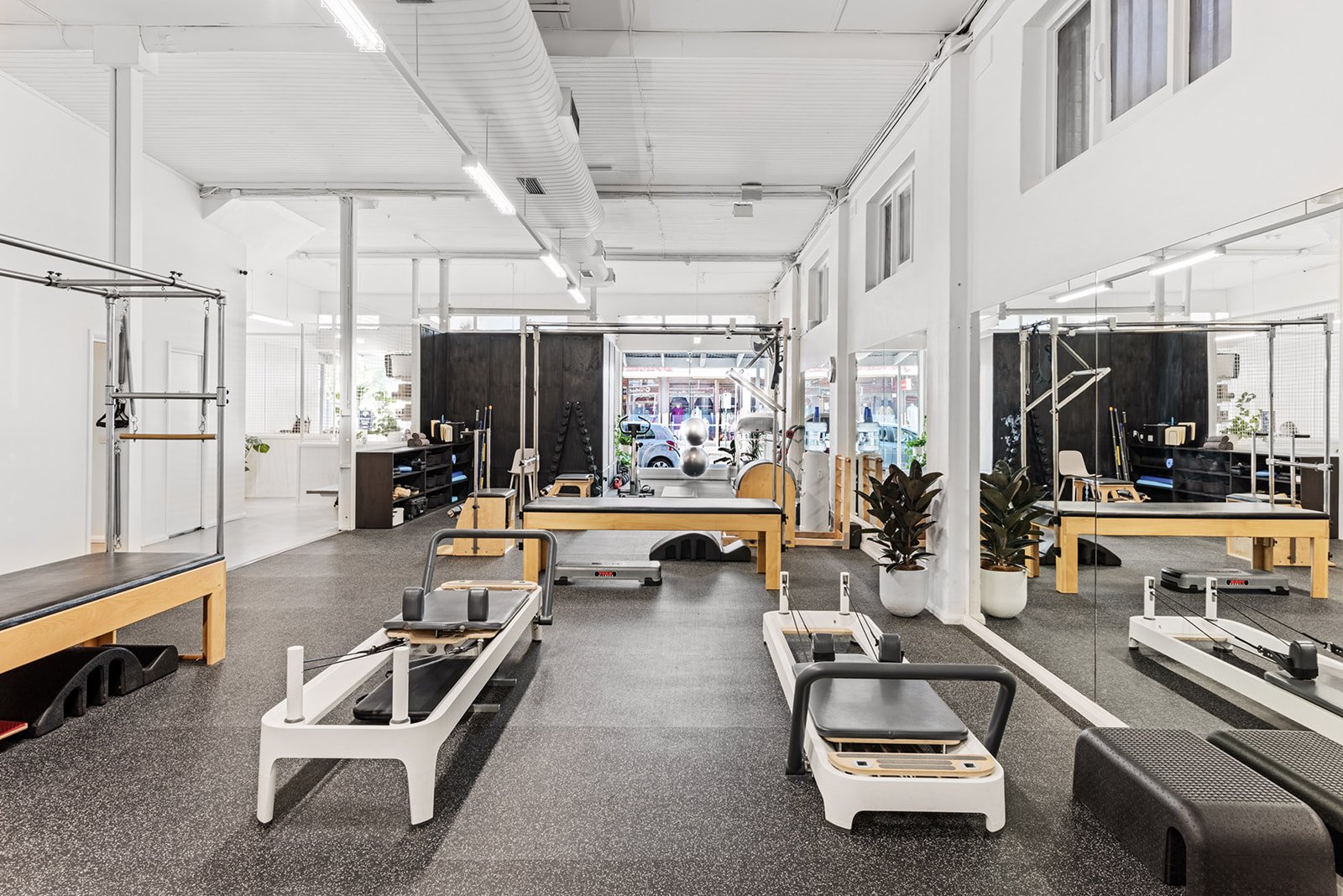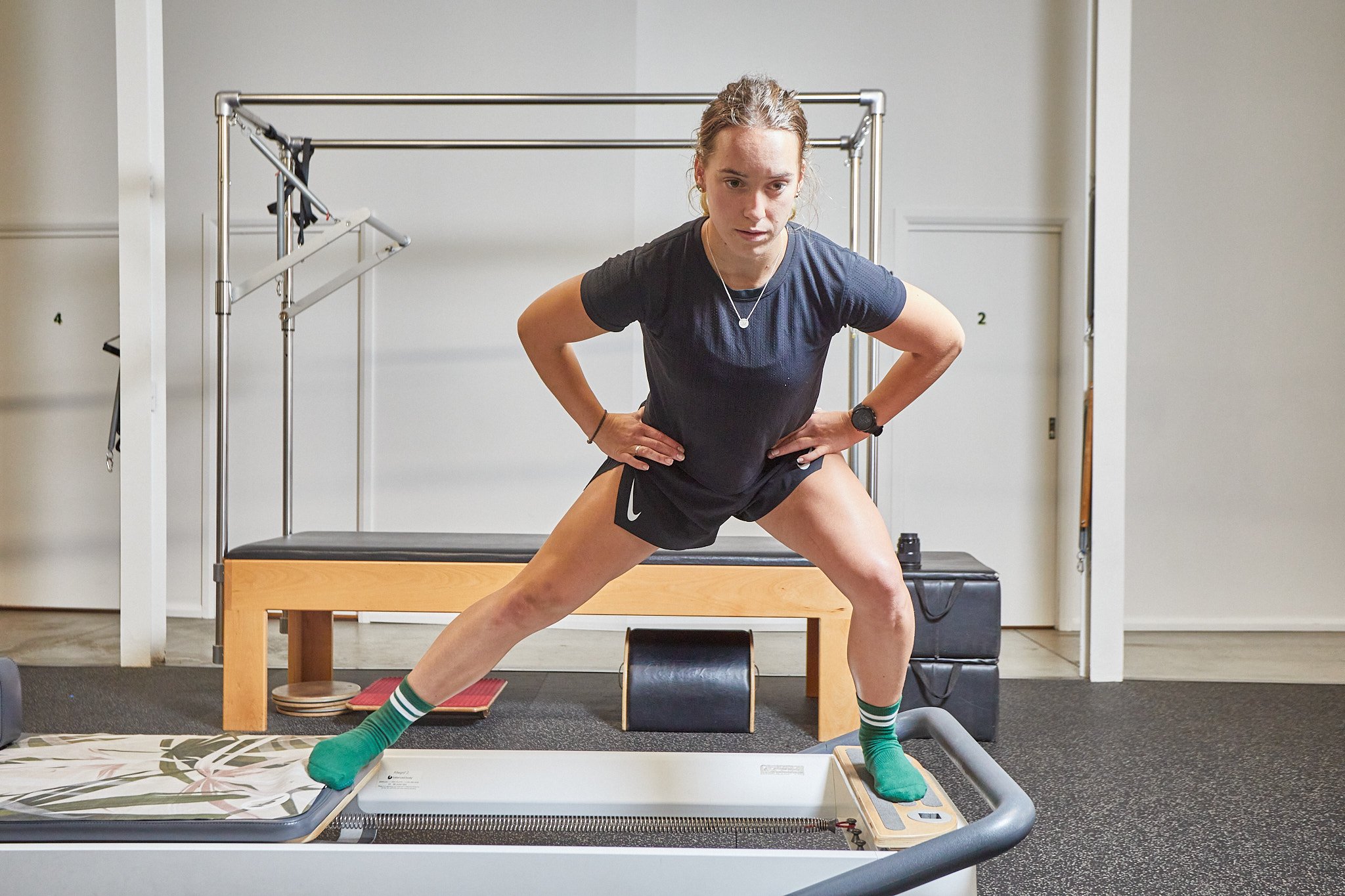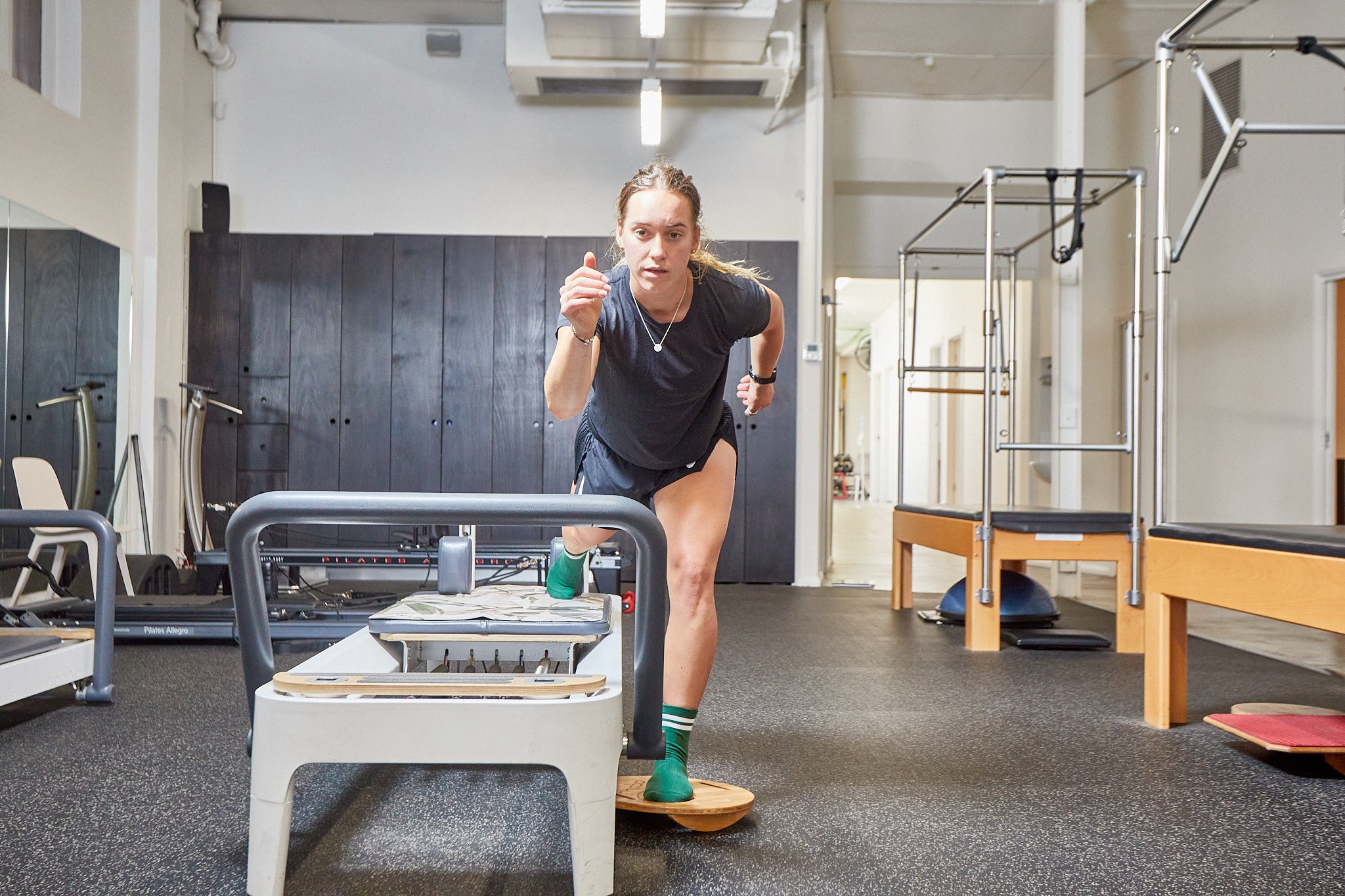Move and Control - Clinical Pilates
Clinical Pilates at Reload Physio
Our MOVE and Control Clinical Pilates services are the perfect transitions between injury and strength training. These services can get you moving again and help you regain control of your body with specific Pilates-inspired exercises. We use a variety of equipment which can include the Pilates reformers, trapeze tables and wunda chairs. Think of it as Clinical Pilates, done the Reload Physio way!
At Reload Physio, we have physiotherapists with extensive training in Clinical Pilates and will work with you to make you feel your best. To get started with our Clinical Pilates service, you will need to book an initial MOVE and Control consultation with our physiotherapists to develop a personalised programme for your needs. Different Clinical Pilates services are available to suit your needs. This ranges from private one-on-one consultations or regular class participations. We offer a range of packages that can be used towards either your one-on-one consultation or class attendance.
Reload Physio Passes
There is an option for you to purchase either a 5-pack or 10-pack to be used for your Clinical Pilates consultation. These passes are pre purchased. Once your sessions or class attendances have completed, you will be able to submit and claim with your private health insurance manually.
Purchase a 5x Pass to receive 5% off the total service cost (3-month expiry).
Purchase a 10x Pass to receive 10% off the total service cost (6-month expiry).
You may also purchase a 15x or 20x passes, however, these are with a maximum of 10% off (6-month expiry).
Please do not hesitate to speak to our admin team if you would like more information about our Clinical Pilates service.
If Clinical Pilates is new to you and you would like to know if it is right for you, continue reading below for further information.
What is Clinical Pilates?
Clinical Pilates is a form of physical exercise originally developed by Joseph Pilates in the early 20th century in Germany, focusing on posture, core stability, balance, control, strength, flexibility, and breathing. Today, Clinical Pilates is frequently integrated with physiotherapy to aid in treating various injuries, for example, spinal or sporting injuries. There are many research that supports the use of Clinical Pilates as a therapeutic form of exercise to manage injuries of different forms or severities.
Clinical Pilates is suitable for individuals across all age groups, from young children to older adults, including those undergoing pre- and post-pregnancy treatment. Individuals suffering from chronic pain can also benefit from it. Moreover, Clinical Pilates serves as a conservative treatment option for managing conditions that may require surgery.
Difference between Clinical Pilates and Regular Pilates
There are several differences between Clinical Pilates and Regular Pilates. These include:
Class Instructors: Clinical Pilates classes is overseen by qualified health professionals, while regular Pilates sessions are led by Pilates instructors
Individual focused: in Clinical Pilates classes, clients complete specific exercises catered to their injury and physical needs whereas everyone does the same exercises in a regular Pilates class.
Aim: Clinical Pilates is often used as a form of rehabilitation following an injury, while traditional Pilates caters to the general public and does not focus on a particular injury or individual client goals.
Class Size: Clinical Pilates instructors limit the number of clients in each class to typically no more than eight. This ensures clients receive ample attention from the instructor. Traditional Pilates classes, however, are usually bigger, depending on the studio space.
Technique: in Clinical Pilates, more emphasis is placed on mastering the correct technique to optimise outcomes and improve awareness of your movements.
Benefits of Clinical Pilates
Clinical Pilates offers a wide range of benefits that can positively impact both physical health and overall wellbeing. These benefits include:
Improved posture - due to its focus on core muscles strengthening
Improved core and pelvic floor strength and control
Increased muscle strength and flexibility
Injury re-aggravation/prevention - through strengthening of specific muscle group as part of rehabilitation
Improved balance and proprioception
Improved coordination and motor control
Symptom management – improved frequency or intensity
Improved overall fitness level
These benefits make Clinical Pilates a versatile and effective form of exercise for people of all ages and fitness levels, whether they are recovering from an injury, managing chronic conditions, or simply looking to improve their physical health and fitness.
Frequently Asked Questions
-
No, you don't need a referral from a GP to join our Move and Control Clinical Pilates-based sessions of MOVE classes. However, if you're seeking a rebate through private health insurance, some providers may require one, and/or specific requirements in your assessment may be required to meet insurance requirements. It's best to check with your insurer for specific requirements or speak to us for more details.
-
The primary difference between Clinical Pilates and regular Pilates lies in their focus and instruction. Clinical Pilates is tailored to individual needs, often prescribed by healthcare professionals.
Regular Pilates, on the other hand, is generally a fitness-oriented practice that focuses on improving overall strength, flexibility, and body control through a set routine of exercises.
Generally, Clinical Pilates addresses an injury or physical complaint with a targeted program, while Pilates is far more general in nature.
To learn more about clinical pilates, head to our Brunswick studio or contact us at
E: hello@reload.physio, T: 03 9034 7621.
-
At Reload Physio, Clinical Pilates can be combined with other therapies, such as physiotherapy or massage therapy. We provide a multidisciplinary approach that enhances overall recovery and rehabilitation to achieve optimal results.
-
The ideal frequency for Clinical Pilates varies depending on individual goals and conditions. Generally, 2 to 3 sessions per week are recommended for optimal results. Consult with our physiotherapists for a tailored schedule that best suits your needs.
-
Simply book online or call the clinic to book an Individual Move and Control Clinical Pilates consultation.
If you are unsure if Clinical Pilates is right for you, book an initial consultation with a physiotherapist. They can assess your needs and direct you on the right path.
-
Medicare generally doesn't cover Clinical Pilates unless it's included in a Chronic Disease Management Plan (CDM) prescribed by your GP. Always check with your insurer or healthcare provider for specific details.
You can claim rebates for Clinical Pilates through private health insurance if it’s part of your Extras Cover.
Find out more about our MOVE classes below.





